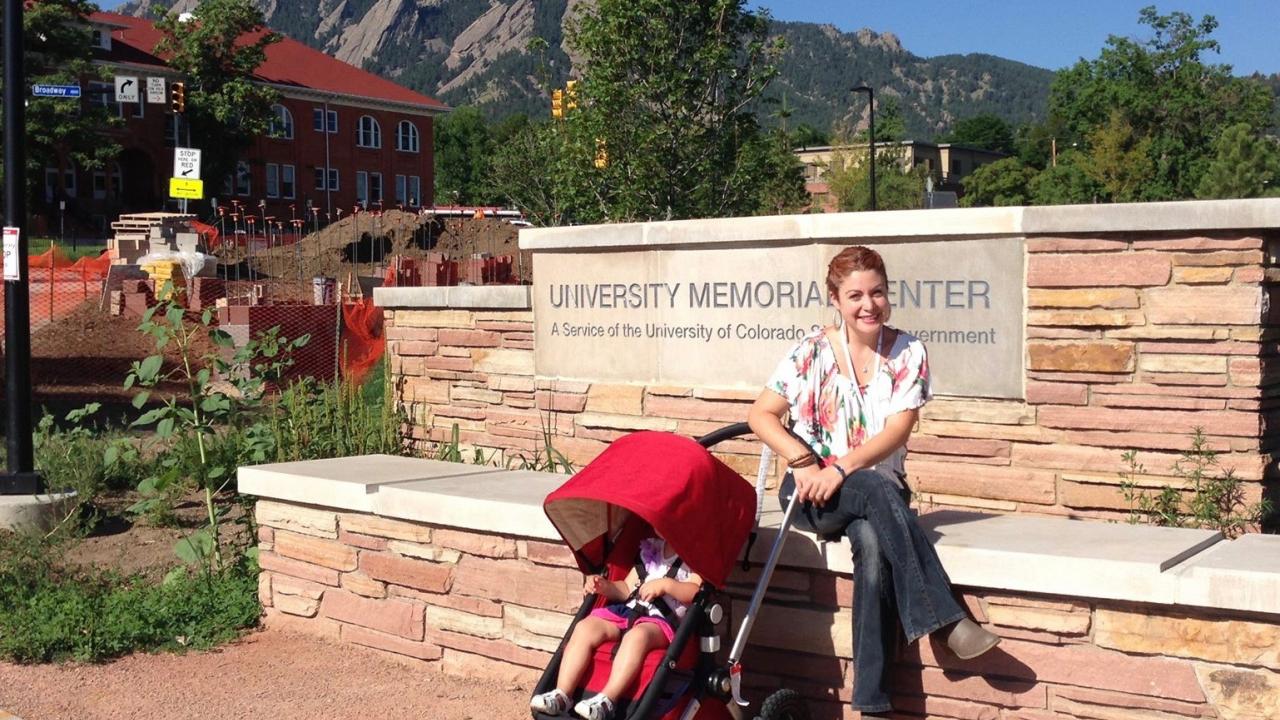A group of female academics is calling on scientific conferences to do more to accommodate nursing mothers and parents to help normalize parenthood in academia — removing a significant barrier to women beginning their careers in science.
“Nursing and child care, most often provided by women, are not a luxury; they are a biological necessity,” said Rebecca Calisi Rodriguez, assistant professor of neurobiology, physiology and behavior at the University of California, Davis, who is organizing the effort.
An article setting out simple steps to make conferences more family-friendly, co-authored by Calisi and the Working Group of Mothers in Science, 45 academics from UC Davis and elsewhere, appears in Proceedings of the National Academy of Sciences March 5.
Attending conferences is often vital for academic scientists. They provide a place for sharing new research and ideas, maintaining collaborations, recruiting students and postdoctoral scholars, and making contacts with funding agencies. But they often lack adequate facilities and resources for parents. Many times, on-site child care is not provided, and when it is, it is not affordable for those starting their careers. Dedicated spaces for nursing and lactation are either nonexistent or insufficient.
This all poses a challenge for new parents, especially women due to biological (pregnancy and breastfeeding), prejudicial (pre-existing gender bias), and often socially driven demands for women to offer the majority of child care. Not offering appropriate resources or support for these women to attend conferences may harm their careers, reduce diversity in academic science and in the long run, harms the whole scientific enterprise by keeping talented people out.
UC Davis Breastfeeding Support Program
UC Davis’ award-winning Breastfeeding Support Program provides lactation sites and other resources including lactation consultations, support groups and classes. There are about 50 lactation sites on the main Davis campus and 12 at UC Davis Health campus in Sacramento. Lactation stations are required in all new campus construction and in projects involving significant renovation.
The situation is slowly improving, but there is still a lot of room for improvement, Calisi said. At a recent conference with over 30,000 attendees, she found just three small, curtained areas for nursing and child care.
“To argue that this is better than nothing is akin to arguing that, despite a hostile work environment, women should be grateful that they are allowed to work in the first place,” she said.
The article offers guidelines that organizers can use for conferences of all sizes and different types of venues.
“As academics who have cared for, adopted, birthed, primary parented, or breastfed a baby, while pursuing a career in science, we have compiled four concrete suggestions … for scientific societies and conference organizers willing to take a leadership role in creating solutions, either incrementally or on a large scale,” the authors write.
Their recommendations are set out under the acronym CARE: supporting Child care, either onsite or at home through financial support; Accommodating families, with family-friendly dates, venues and schedules; providing Resources, such as lactation, nursing and baby-changing areas; and Establishing a conference-specific social network where parents and caregivers can schedule activities, babysitting and child care swaps, share information and provide emotional support for each other.
Making scientific conferences more family-friendly would send a message that the organizers recognize the challenges parent-scientists face, that working parents (especially working mothers) are valued, and that they want to encourage a diverse and thriving scientific workforce, Calisi said. “We hope this change in our conference culture will serve as a model to inspire change in academic culture as a whole.”
Media Resources
Rebecca Calisi, Neurobiology, Physiology and Behavior, rmcalisi@ucdavis.edu
Kat Kerlin, UC Davis News and Media Relations, 530-750-9195, kekerlin@ucdavis.edu
